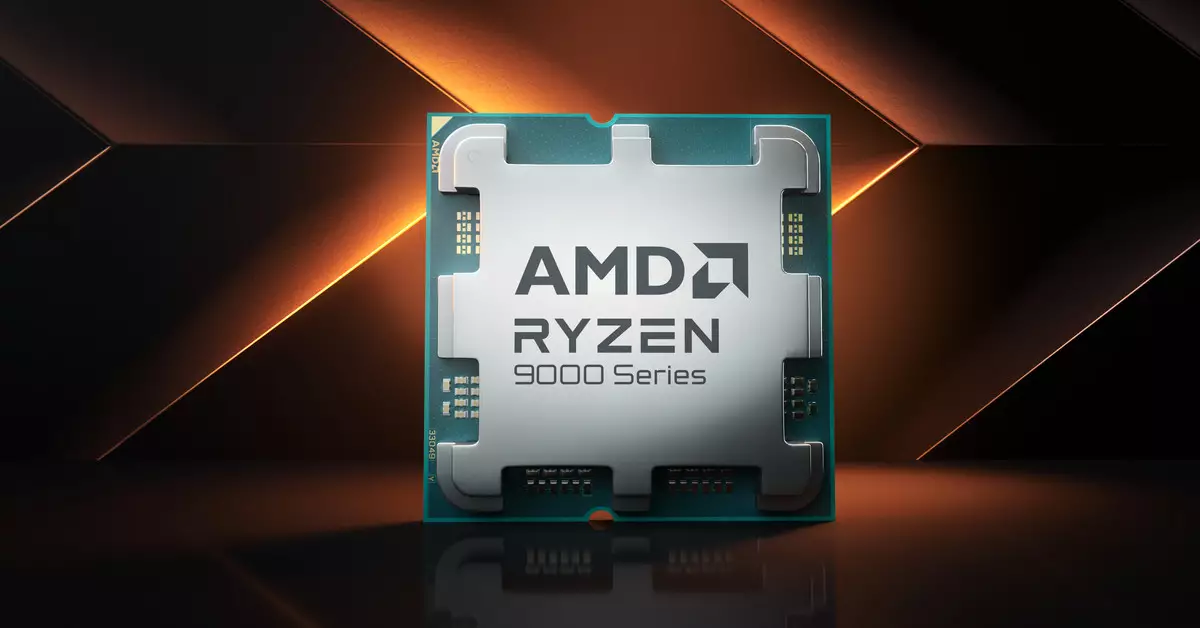In the fast-moving world of computer hardware, surprises can both invigorate the community and dampen expectations. Recently, a leak concerning AMD’s yet-to-be-announced Ryzen 9000X3D desktop processors has sparked interest and skepticism within the tech sphere. This accident, reminiscent of a similar unveiling in the past, raises questions about the true capabilities of these new chips and what they mean for AMD’s competitive position.
The Ryzen 9000 series has struggled to capture the admiration of tech enthusiasts, with previous models receiving mixed reviews primarily due to their lackluster performance. According to a presentation from MSI, which has surfaced through various tech channels, the newly revealed Ryzen 9000X3D processors appear to show promising improvements in multicore tasks, with reports suggesting up to a 28 percent increase in performance in Cinebench R23 over the Ryzen 7 7900X3D. While this metric may sound impressive on paper, the real-world application seems less compelling.
The preliminary results from MSI’s benchmarking revealed only marginal improvements in gaming performance, with gains noted to be as little as 2 percent for titles like Black Myth: Wukong and Shadow of the Tomb Raider. Such scant enhancements, especially in the context of competitive gaming, may not be enough to attract gamers who demand exceptional performance upgrades. Furthermore, the X3D processors showed performance metrics nearly identical to the standard Ryzen 9000 series, suggesting that consumers may not find a substantial reason to upgrade.
While leaks are common in the tech industry, the context surrounding this particular revelation raises eyebrows. The presentation from MSI that contained this information seemingly focused primarily on Intel’s new Core Ultra 200S chips, leaving the inclusion of AMD’s X3D line unexplained. Speculation exists regarding whether this was an orchestrated move by MSI to stir interest in their products or merely a slip that complicates AMD’s carefully timed marketing strategy.
Emerging from such leaks can often lead to speculation that may mislead consumers or investors. It is essential to approach new information with caution, particularly when performance metrics have not yet been confirmed through rigorous retail testing. MSI has mentioned that “performance is expected to be better on PR samples and retail chips,” which suggests that we may not have yet seen the full spectrum of what these new processors can offer.
Overall, the revelation of AMD’s Ryzen 9000X3D processors showcases a critical juncture for the company. As they navigate potential pitfalls regarding product performance and market expectations, the effectiveness of these new chips seems to echo the sentiment of their predecessors rather than providing a substantial leap forward. With the looming presence of competitors like Intel, AMD must find ways to enhance their offerings beyond incremental upgrades. Industry enthusiasts are left eagerly waiting for more definitive performance benchmarks and the official launch of these processors, hoping for a significant turnaround in AMD’s trajectory.


Leave a Reply